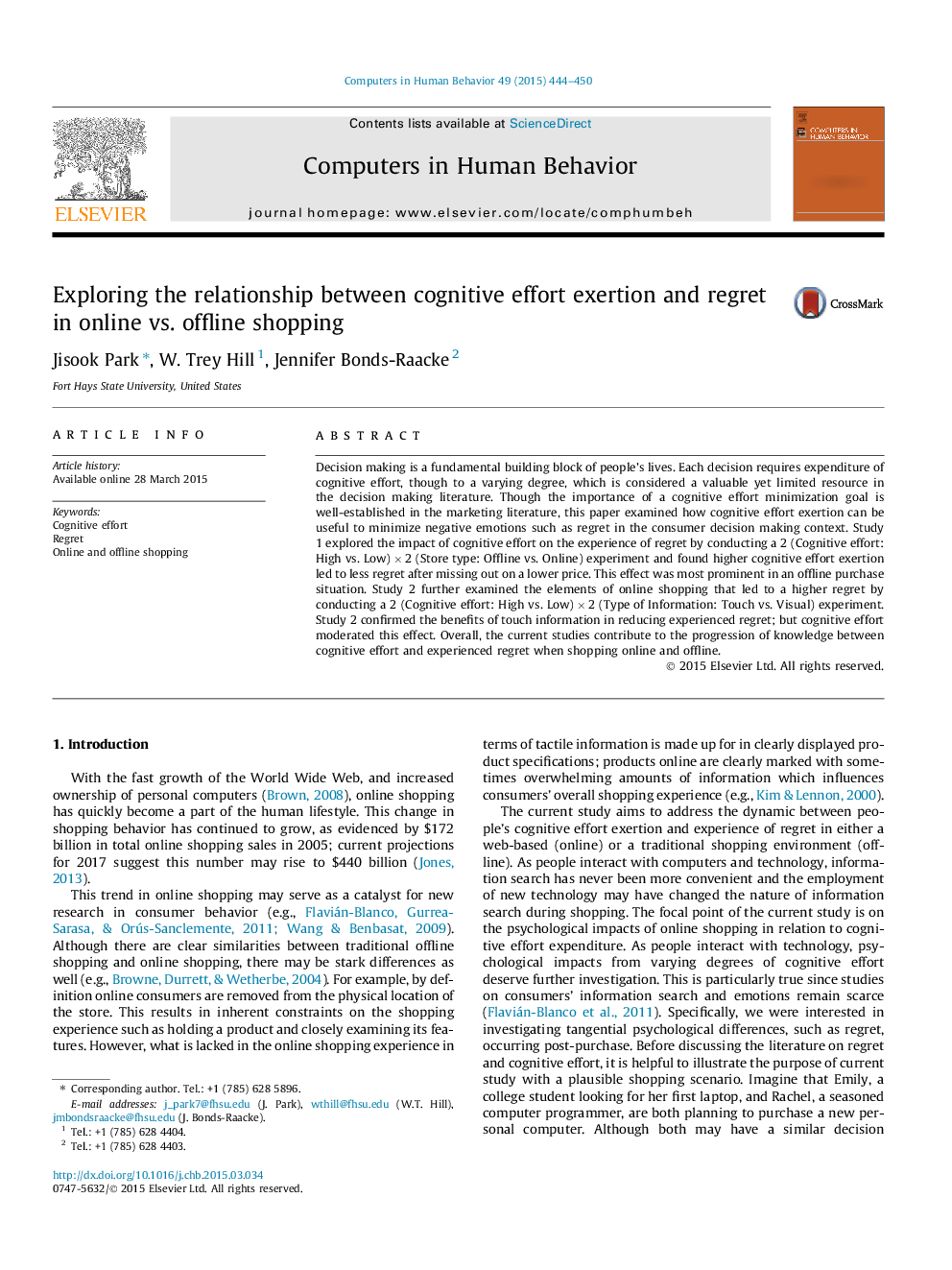| Article ID | Journal | Published Year | Pages | File Type |
|---|---|---|---|---|
| 350343 | Computers in Human Behavior | 2015 | 7 Pages |
•Modeled experienced regret as a function of cognitive effort and store location.•Cognitive effort moderates the effect of store location on experienced regret.•Modeled experienced regret as a function of information type and cognitive effort.•Cognitive effort moderates the effect of information type on experienced regret.
Decision making is a fundamental building block of people’s lives. Each decision requires expenditure of cognitive effort, though to a varying degree, which is considered a valuable yet limited resource in the decision making literature. Though the importance of a cognitive effort minimization goal is well-established in the marketing literature, this paper examined how cognitive effort exertion can be useful to minimize negative emotions such as regret in the consumer decision making context. Study 1 explored the impact of cognitive effort on the experience of regret by conducting a 2 (Cognitive effort: High vs. Low) × 2 (Store type: Offline vs. Online) experiment and found higher cognitive effort exertion led to less regret after missing out on a lower price. This effect was most prominent in an offline purchase situation. Study 2 further examined the elements of online shopping that led to a higher regret by conducting a 2 (Cognitive effort: High vs. Low) × 2 (Type of Information: Touch vs. Visual) experiment. Study 2 confirmed the benefits of touch information in reducing experienced regret; but cognitive effort moderated this effect. Overall, the current studies contribute to the progression of knowledge between cognitive effort and experienced regret when shopping online and offline.
